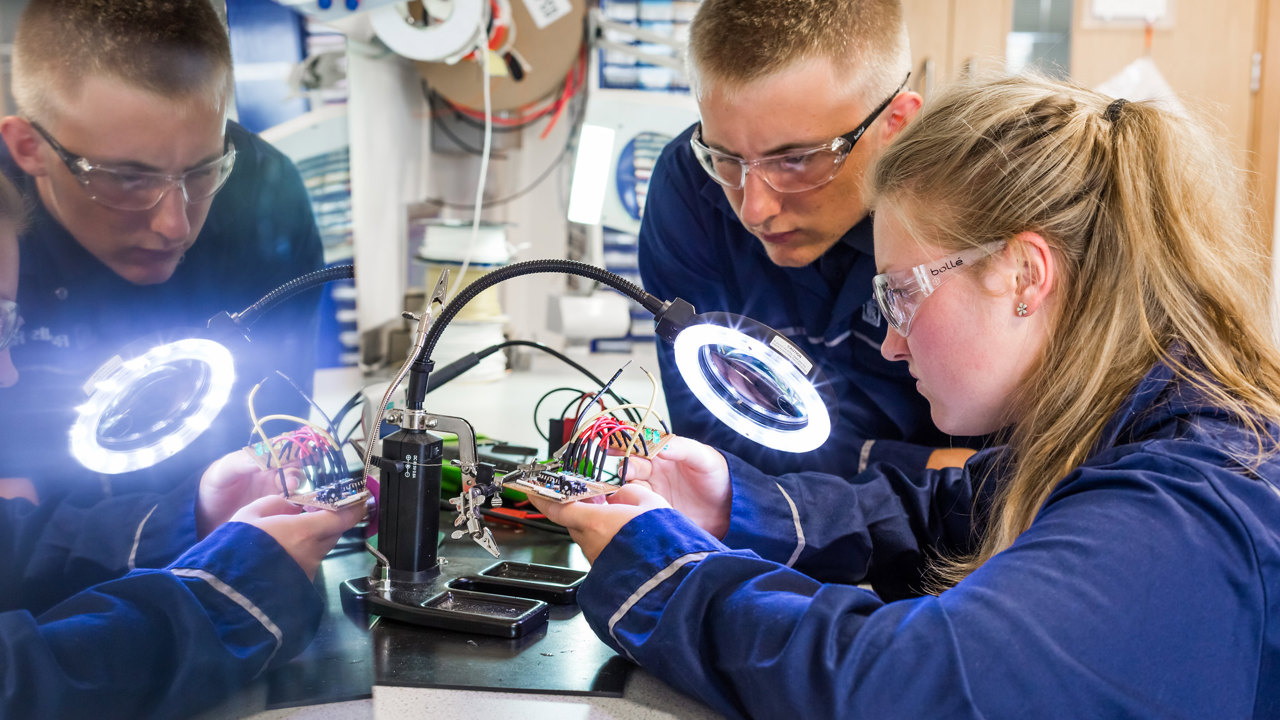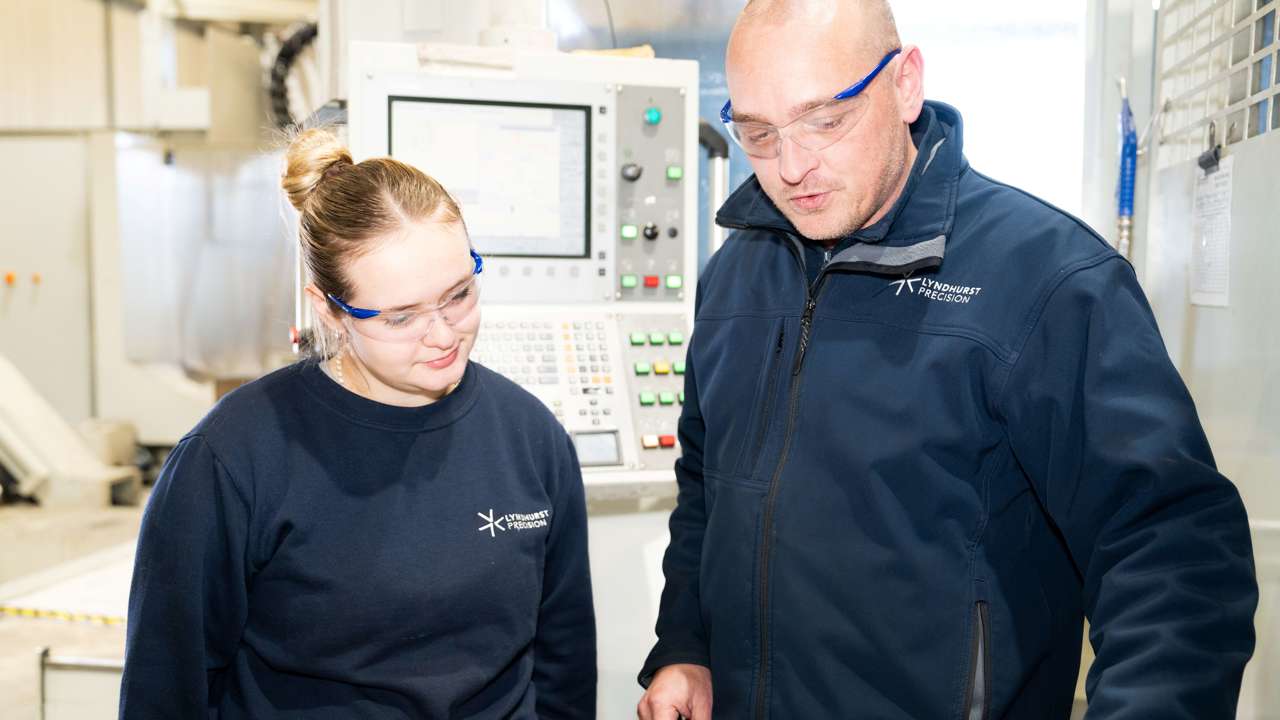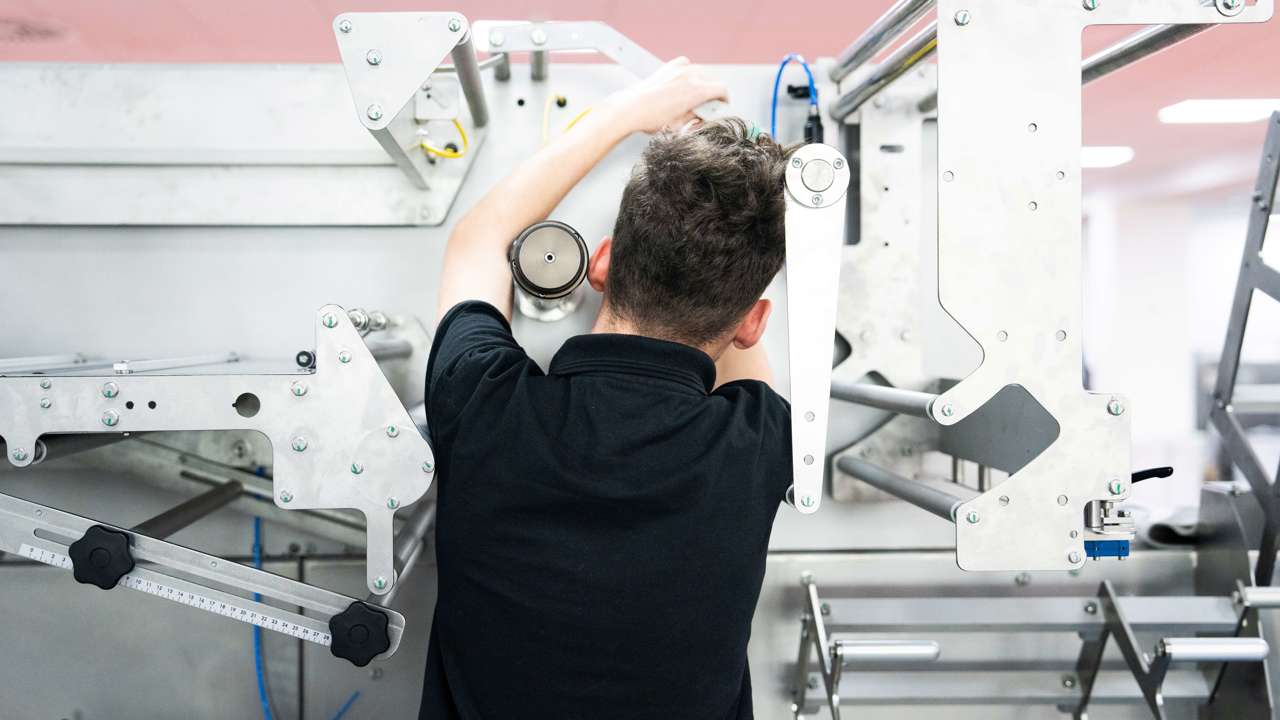Recruiting and retaining teachers must be a government priority
By Beatrice Barleon Head of Public Affairs and Policy, EngineeringUK
EngineeringUK Head of Public Affairs and Policy, Beatrice Barleon, highlights the key policy priorities EngineeringUK wants the new government to adopt to ensure that there are enough STEM educators

As the UK gears up for the general election, our Head of Public Affairs and Policy, Beatrice Barleon, highlights the key policy priorities EngineeringUK wants the new government to adopt to ensure that there are enough STEM educators available to teach the engineering and technology workforce of the future.
With demand for engineering jobs growing and with engineering and technology solutions crucial to the success of the UK, we need many more young people to see engineering and technology jobs as appealing.
STEM teacher shortages are not news, but recent developments have raised alarm bells in the STEM and teaching community and are now seen as an almost existential threat to the future of science, physics, technology and maths teaching in schools across the country. Department for Education data tells us that there were over 1,600 STEM subject vacancies in state secondary schools in England alone as at November 2023 (2023/24), compared to 1,300 in the previous year and around 360 in 2010/11, with more bad news likely in the coming years unless something changes drastically. It is in light of these figures and the impact we know these shortages of qualified specialist teachers have on the quality of teaching science, maths, physics, computer science and design & technology in schools, that EngineeringUK has made it a priority to call for measures to improve STEM teacher recruitment, training and retention in its ‘policy priorities for the next government’.
At EngineeringUK, we know the importance of good teachers - subject specialists who really know how to transfer knowledge to young people in a way that excites them. Good teachers know not only how to make the connection between the real world and the physics or chemistry they are teaching, but they also know the importance of giving young people hands-on opportunities to experiment and see for themselves how theory translates to reality.
Practical, hands-on science teaching is absolutely essential to engaging young people and getting them excited and interested in STEM subjects and the careers that follow. The recently published Science Education Tracker, for example, highlighted that opportunities for hands-on practical science are particularly important for less engaged students. The research found that years 7-9 students’ main motivator for studying science is practical science and that girls are more likely to say this. Yet the research also found that between 2016 and 2023, there was a marked reduction in young people’s access to more interactive forms of practical science across all year groups, with only 26% of GCSE students doing hands-on practical work at least every fortnight, down from 44% in 2016.
The decline in this kind of teaching is detrimental not only to the young people themselves, who are as a result more likely to be turned off by STEM subjects and careers, but also to the wider UK economy. With demand for engineering jobs growing and with engineering solutions crucial to the success of the UK, economically, socially as well as environmentally, we need many more young people, girls and boys, to see engineering and technology jobs as something for them, jobs they want to do and can succeed in.
So, what needs to be done?
We have talked for years about the need for more teachers, particularly in STEM subjects. Various things have been tried, with more or less success. Additional funding, bursaries, quick access teaching course – you name it. However, clearly more needs to be done to make teaching an appealing career. And with the aftermath of the Covid pandemic and all the changes in working practices that followed, things have certainly not become easier.
At EngineeringUK, we have come to the conclusion we need to talk as much about retention as we talk about recruitment, because one without the other is like throwing money down a drain, feeding a system that is unsustainable and simply unsatisfactory. That’s why we are making the case to all the parties leading up to the general election and beyond, that investing in teachers’ Continuous Professional Development (CPD), is not an option but a must. And so we are dismayed that a large chunk of CPD funding for science teachers has recently been cut by the Department for Education in what seems like a money-saving exercise that is only likely to cost the state more in the long run.
Analysis commissioned by Wellcome found that providing science specific CPD increases the odds of science teachers staying in the profession the following year by 160%, from 1 in 12 leaving to 1 in 30. And the Royal Society has calculated that ‘an increase of 1.5% in the retention rate would mean that 8,800 teachers from each annual cohort would remain in the profession until retirement and that the reduced need for additional recruitment and initial teacher training costs would save at least £126 million per year.’
However, CPD does not only make sense from the financial perspective. It also means that the teachers who teach our children feel equipped, enabled and supported to teach to the best of their ability. It means that teachers know how to make the connections to the real world and have up to date examples to draw on. And it means that they can engage with the outreach activities offered by the sector and enable students to find out what a career in science, engineering or technology could offer.
Yes, pay matters, working conditions matter. But there is no doubt that the satisfaction of seeing students succeed, getting excited about learning and feeling like you are making a difference is a big draw. This is why a focus on and increased funding for Continuous Professional Development for teachers should be front of mind for all the parties and certainly a priority for the next government.
Analysis commissioned by Wellcome found that providing science specific CPD increases the odds of science teachers staying in the profession the following year by 160%, from 1 in 12 leaving to 1 in 30.
— Head of Public Affairs and Policy, Beatrice Barleon












